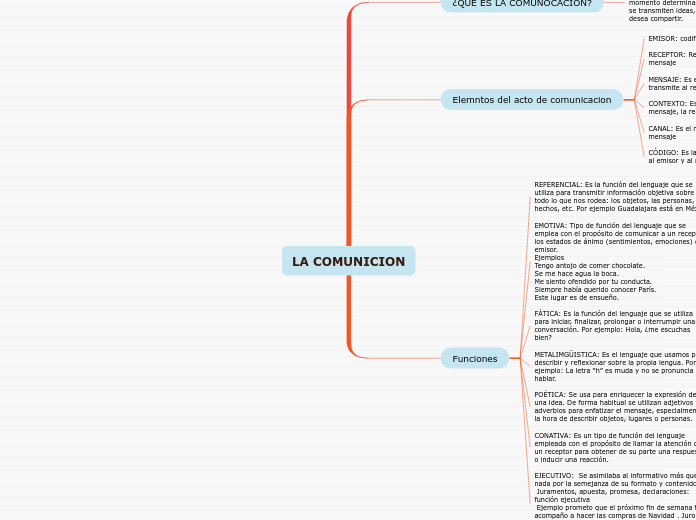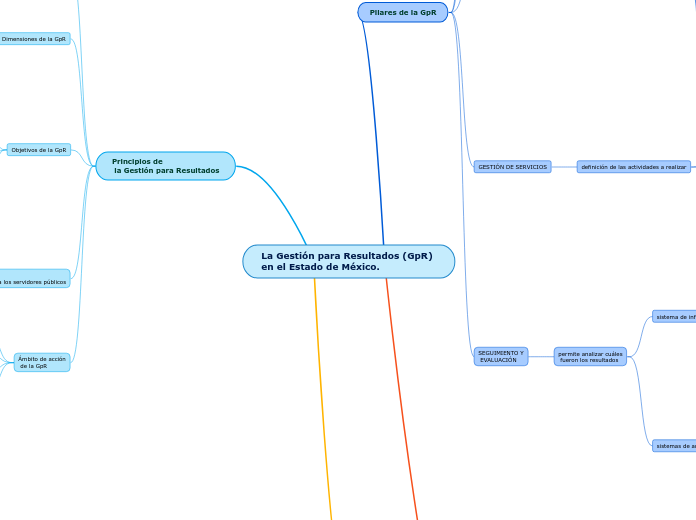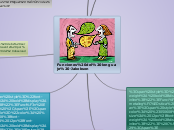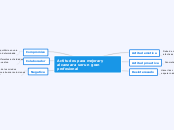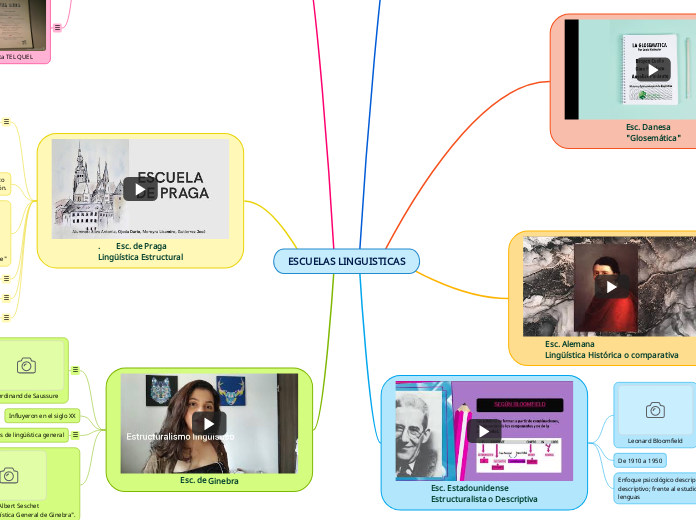LA COMUNICION
To name your story, you have to think about the overall message and what you want your audience to understand from the story. Also, make it relevant and easy to remember.
Funciones
The ending of a story is essential. We all know that if the ending is weak, what happened before loses its importance. So make it unpredictable, but fair. A resolved ending answers all the questions and ties up any loose threads from the plot.
EJECUTIVO: Se asimilaba al informativo más que nada por la semejanza de su formato y contenido.
Juramentos, apuesta, promesa, declaraciones: función ejecutiva
Ejemplo prometo que el próximo fin de semana te acompaño a hacer las compras de Navidad . Juro solemnemente decir la verdad toda la verdad y nada más que la verdad.
CONATIVA: Es un tipo de función del lenguaje empleada con el propósito de llamar la atención de un receptor para obtener de su parte una respuesta o inducir una reacción.
POÉTICA: Se usa para enriquecer la expresión de una idea. De forma habitual se utilizan adjetivos y adverbios para enfatizar el mensaje, especialmente a la hora de describir objetos, lugares o personas.
METALIMGÜISTICA: Es el lenguaje que usamos para describir y reflexionar sobre la propia lengua. Por ejemplo: La letra “h” es muda y no se pronuncia al hablar.
FÁTICA: Es la función del lenguaje que se utiliza para iniciar, finalizar, prolongar o interrumpir una conversación. Por ejemplo: Hola, ¿me escuchas bien?
EMOTIVA: Tipo de función del lenguaje que se emplea con el propósito de comunicar a un receptor los estados de ánimo (sentimientos, emociones) del emisor.
Ejemplos
Tengo antojo de comer chocolate.
Se me hace agua la boca.
Me siento ofendido por tu conducta.
Siempre había querido conocer París.
Este lugar es de ensueño.
REFERENCIAL: Es la función del lenguaje que se utiliza para transmitir información objetiva sobre todo lo que nos rodea: los objetos, las personas, los hechos, etc. Por ejemplo Guadalajara está en México
This is the closure section of the story.
See examples of possible outcomes below:
- all problems have been solved
- it's clear how each one of your characters ends up
- your main character is transformed by the challenge
Elemntos del acto de comunicacion
The middle of the story is where you add layers of complications that will lead to the end. Reveal more about the character's journey. Did their personality go through changes? How did they overcome the challenges? And as you build up the story’s central conflict, make it more personal to that character. Also, from the middle act, you have to lead into the final act.
CÓDIGO: Es la lengua o el sistema de signos, común al emisor y al receptor
CANAL: Es el medio físico por el cual se transmite el mensaje
CONTEXTO: Es el tema general al que refiere el mensaje, la realidad que es referida y percibida
MENSAJE: Es el contenido informativo que el emisor transmite al receptor
RECEPTOR: Recibe, decodifica en interpreta el mensaje
EMISOR: codifica, elabora y transmite el mesaje
There wouldn't be any tension and excitement in your story if there weren't any obstacles in your character's way.
¿QUE ES LA COMUNOCACIÓN?
In the beginning of the story (or the exposition), you will need to introduce the setting and characters. You might also want to introduce the main conflict. This part of the story is important because it gives the reader necessary background information and maybe even a first insight into a character’s personality.
La comunicación es un proceso por el cual el emisor establece una conexion con un receptor en un momento determinado y establecido por las cueles se transmiten ideas, o alguna informacion que se desea compartir.
The setting (time & place) of a story can change throughout the plot.
